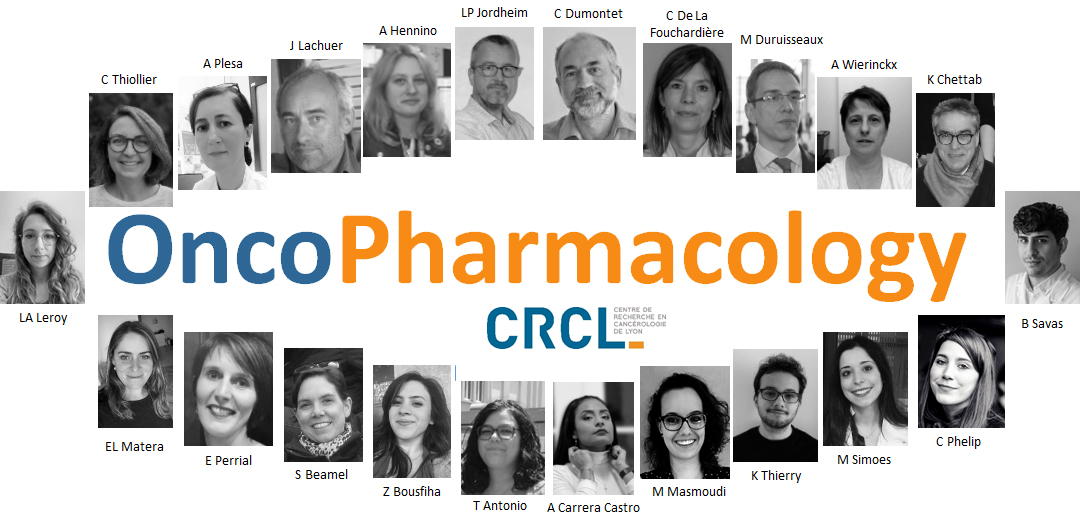Oncopharmacology

Objectives
In our group, we study interactions between cancer drugs and tumor cells, and we propose new therapeutic approaches based on the knowledge of these interactions. We study different treatments (small molecules, monoclonal antibodies, antibody-drug conjugates, immunomodulators…) on different models of cell culture, co-culture, cell printing or animal models, representing both hematologic malignancies and solid tumors.
Projects
Anticancer drugs are part of the tumor microenvironment of cancer patients as long as they are treated with small-molecule- or monoclonal antibody-based chemotherapy. We are interested in interactions between these drugs and the cancer cells within the tumor, but also with cells of the microenvironment (immune cells, fibroblasts, adipocytes…). Our studies concern mechanisms of action and resistance of the drugs, their action on cells and the action of cells on the drugs, as well as the development of new therapeutic strategies based on the obtained knowledge. A second aspect of our research concerns the study of the role of certain proteins in the biology of cancer cells. We are here interested in proteins identified in the work on drugs and treatments. We use an approach that includes studies on cell models, animal models, clinical samples and patients. Our team is composed of researchers, university lecturers and hospital practitioners together with a solid technical staff and students. We have collaborators in the field of chemistry, molecular modelling, biology and industrial partners, allowing us to be actors of therapeutic innovation. We also have strong links to the clinics for translational research and study of prognostic factors. Several biotech companies have been created over the last years with a strong implication of our team and on the basis of research within our team.
We do not limit our work to one specific tumor or one specific treatment, but apply our scientific approach to various projects. Here are some examples:
- Study of resistance to anti-PD1/PD-L1 antibodies on syngeneic models of in vivo This project allows to characterize the resistance with its modification of cancer cells and immune infiltrations, and to propose new approaches allowing to regain activity on resistant models.
- Role of physical constraints in the development of pancreatic cancer, and implication on treatments.
- The use of cellular 3D printing to create relevant models with several cell types for the study of anticancer drug activity.
- Inhibition of DNA repair with protein-protein interaction inhibitors to increase the activity of certain anticancer treatments.
- Role of genetic translocations of the response of lung cancer to targeted therapies.
- Development of inhibitors of 5’-nucleotidases and study of the role of proteins in the nucleotide metabolism in the biology of cancer cells.
- Stimulation of the immune system by formulated LPS or G-CSF in preclinical and clinical studies.
-
Charles DUMONTET
charles.dumontet@chu-lyon.fr
04 78 77 71 23Lars Petter JORDHEIM
lars-petter.jordheim@univ-lyon1.frFaculté Rockefeller
4ème étage, escalier B
8 avenue Rockefeller
69008 Lyon